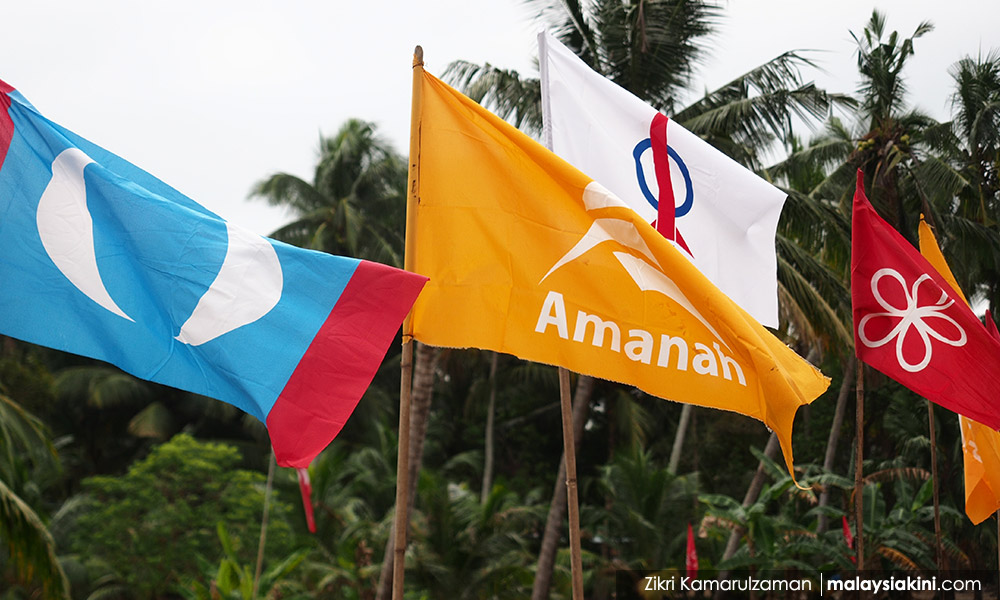
Published by EMIR Research, image from Malay Mail.
When Saudi Crown Prince Mohammed bin Salman’s bypassed Malaysia in his Asian Tour, civil society groups were preparing for the forum called “Stand with Yemen” that was conducted on 23 February at the International Institute of Islamic Civilization and Malay World (ISTAC). Tackling the questions from those “standing with Yemen” was not among the Prince’s plans and probably will not be for a time being, should he think of visiting Malaysia again. Malaysians, meanwhile, are taking their time to discuss who they need to support in their international interactions.
Make Malaysian foreign policy principled again
Making Malaysian foreign policy principled again is an endeavor associated with Mahathir’s return to power. Always uncompromising on standing for Palestinians and against Israel, Mahathir returned to the Prime Minister’s chair only to find the Middle East and the rest of the world in more disarray than before.
In these circumstances, the hotly debated decision to ban Israeli para-sportsmen to compete on Malaysian soil is a continuation of the old policy towards Israel. It seems more difficult to decide on how to respond to new regional and global challenges.
Can Malaysia take a harsher stance on how Myanmar treats its Rohingya or China’s policies towards its numerous Uighur minority? Can Malaysia finally utter to Saudi Arabia that the military campaign against Ansar Allah (known as the Houthi movement) in Yemen must stop or the US-supported uprising in Venezuela is not the way to bring the country towards democracy and economic betterment, especially when there is a sovereignty at stake?
In the course of the “Stand with Yemen” forum, the current head of Human Rights Commission of Malaysia (SUHAKAM) Tan Sri Razali Ismail reminded us how active Malaysia was in condemning the apartheid in South Africa and that no involvement into any military campaign abroad happened without adherence to formal procedure, i.e. obtaining parliament’s prior approval.
When the new PH government took power in May last year, they found that Malaysian troops were involved in the Saudi-led military campaign in Yemen. Since the decision had not been run through parliament or the National Security Council, the public has yet to be told what the troops were doing there in defiance of the Malaysian policy of non-interference, or about the massive spending (RM14.6 million) that the military campaign invoked for Malaysia since 2015.
Tun Mahathir’s speech to the participants of the forum, delivered by Foreign Minister Saifuddin Abdullah, struck straight to the point. “It is hypocritical to talk about human rights and democracy while participating in the mass murder of civilians”, read the speech – alluding to the United States, Britain and France and the massive arms sales to the region.
Tun Mahathir’s doctrine?
While not many in Malaysia might be interested in spending their weekend attending an event on the Yemeni cause, Mahathir’s speech at the forum was quite important, as it laid another brick into the foundation of the New Malaysia’s foreign policy, reasserting principles that have been sidelined for a while.
Firstly, it shows that Malaysia is going to adhere to the principles it sets for itself. It is more prone to call a spade a spade now and expose the hypocrisy of other international actors. So if there are outside powers ready “to fight until the last Yemeni child” for their political ambitions, there is a need to call them to account.
Secondly, it reasserts the non-aligned position in tackling conflicts, as well as its sovereign right to stand for its non-interference policy. “Do not expect us to join you against your rivals and fight your wars,” says Mahathir, apparently addressing foreign powers. The Prime Minister reminded those interested in pulling the country to one or another side of geopolitical battles that Malaysia will be friendly to all countries and not rely on military alliances or strategic partnerships.
Thirdly, it calls the Muslim world to sanity and aspires to being a beacon of that effort, since some other powerful members of the ummah are too busy playing ruthless and bloody geopolitical games. “It’s time that Muslim nations turn aside from war and start working to uplift the socio-economic well-being of all our people,” the speech said, “many Muslim governments are, in fact, waging war against their own people, thousands are oppressed and denied their basic human rights.”
Fourth, it looks inwards, at what global experiences teach Malaysia and its neighbors in ASEAN. China-US rivalry spilling into Southeast Asia is something that will be hard to stand against, but that is one of the things that are a legitimate concern for the Malaysian government.
That was the outline of a just, principled, moral and actionable Malaysian foreign policy.
What was remarkable, though, is that while some Western countries and one Middle Eastern country (Israel) were called by the name, the others remained in their shadow, being referred to as complicit allies of the former. Neither Mahathir’s nor Saifuddin’s speech mentioned Saudi Arabia which could be seen everywhere between the lines.
Furthermore, the boldness of Saifuddin’s statement about the possibility to “bring perpetrators [in Yemen] to justice in the International Criminal Court,” was brought to naught by him saying that the government might “come up with a good statement after Semenyih”. An articulate position on foreign armed conflict should not correlate with a domestic by-election. “Don’t ask me why after Semenyih,” he added. Is he putting the need to deal with the bloody crisis of human morality and party politics into one basket?
Why nobody cares
Tan Sri Razali Ismail suggested that Malaysians continue to be outraged by the application of force onto minorities. However, the extent to which Malaysians are concerned with the oppression of minorities happening at home and abroad remains a question.
Discussions on the Pakatan Harapan manifesto, plans to make the tolls free and the probe of governmental officials on the origin of their diplomas occupy so much time and mental space that there is no place left to dig into remote events and their causes, much less have an informed position.
In his call for Malaysians to seek more knowledge and stand with the oppressed, another panelist at the forum, Dr. Chandra Muzaffar faulted Malaysians for their lack of curiosity.
In actual practice though, the mere lack of curiosity is not the main reason why Malaysians are so uninformed about the crisis in Yemen and other issues on the international humanitarian agenda. This kind of curiosity might be deemed a luxury nowadays. The majority of Malaysians do not have foreign policy research as their full-time job, and their free time is most likely to be occupied by the domestic policy debate, as every day there is something new to follow, with several opinions on various matters.
In the post-truth era, people are overwhelmed with the inflow of information that needs to be analyzed to get a sense of what is going on. Hence, it is quite normal to allocate daily attention quota in a limited manner, and Malaysians are not an exception.
What is fair, however, is that Malaysian media can be more effective in providing deep alternative perspectives of matters abroad and mobilize people in case of need, be it about the civil war in Yemen or the people’s uprising in Venezuela. After all, history has proven it is better to take precautions before the disaster reaches your border, so the reason to care is generally valid.
Those interested to know about the situation on the ground, or about something that helps create empathy (for example, the fact that Malaysia has historical ties with Yemen) can always find reputable sources. Yet, without political will, this knowledge will not be transformed into action or a certain political stance.
“We do not interfere into affairs of the others to create havoc or monopolize an economy, but when it is about human values, it is our concern,” Minister Mujahid Yusof Rawa said about the underlying motives of taking one or another position on foreign matters.
Mujahid’s statement also implied that political will should be supported or even initiated by the people. If a concern for the political performance at the domestic scene can influence foreign policy decisions, then it is a must for them to be made with popular support. Popular support for causes like Yemen, in its turn, will not be possible without the sense of compassion for the other, disregarding faith, ethnicity, nationality or gender. When compassion and empathy know no borders, the lack of curiosity will no longer ever be an issue.
Julia Roknifard is Director of Foreign Policy at EMIR Research, an independent think-tank focused on strategic policy recommendations based upon rigorous research.

